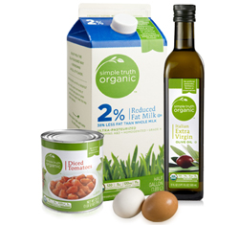VIDEO SLIDESHOW: The Future of Private Brands at Retail 10/22/2015
In the past, consumers typically chose private label brands as an alternative to national brands at shelf primarily due to their lower price. Value was not the primary consideration. Because of this, although store brands can now be found in every department, and offer consumers additional choices at the shelf, shoppers don’t think of store brands the same way same they think of national brands. They don't trust private label to the same degree that they do branded products. One key reason for this is a lack of consistency in private label products across retailers, due to each retailer using different private label suppliers.
However, private brands are evolving every day. They are no longer merely the cheap alternative to branded products. In many cases, private brand quality is better than branded products. According to the November 2014 Nielsen study titled, “The State of Private Label Around the World,” 67 percent of consumers say private label offers extremely good value for the money and 62 percent said purchasing private label makes them feel like smart shoppers. And according to a January 2015 IRI report on private label vs. national brands, 80 percent of consumers now believe that private label quality is equal or better than their national brand counterparts.
Here are some private label facts: Private label sales last year were $120 billion and represent 17.5 percent of total CPG sales volume. Indeed, private label sales growth is outpacing the industry average 1.6 percent. To build a strong store brand, retailers need to increase penetration, build trust, meet consumer needs, establish value/affordability, and authenticity. More importantly, they need to focus growth strategies on their private label brand store wide -- especially in the grocery channel where private label penetration is highest (97.6 percent, according to IRI).
One common mistake retailers make is to view every department as a free standing store. The reality is that products from different departments all interact with each other. Shoppers who like a brand will search it out in other departments if they know it is available. The key is in building trust around the brand in every department -- as a single brand that represents the retailer’s commitment to quality and value. Retailers need to encourage shoppers to buy their store brand corn flakes and store brand tooth-paste during the same trip. The opportunity is for retailers to merchandise and promote their brand throughout the entire store with creative strategies.


Daniel Lohman, CPSA is strategic advisor in the CPG and Organic Industry. His company, Category Management Solutions (CMS4CPG), provides innovative ideas, actionable insights and strategic solutions for companies interested in expanding their retail distribution and improving their merchandising. He spoke at ECRM’s Private Brand Food event April 13, 2015 in Orlando, and can be reached at dan@cms4cpg.com or 303-748-3273.